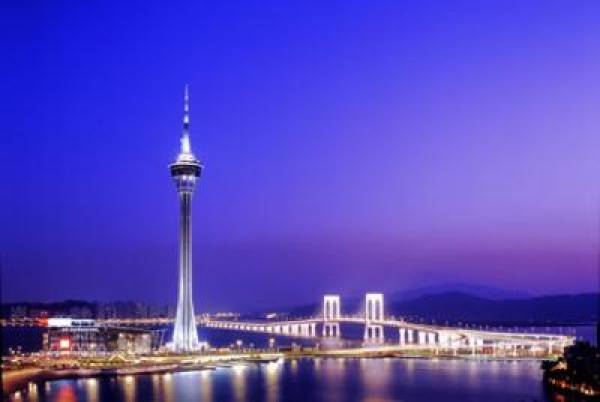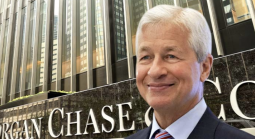Macau Keeps The Dice Rolling

By Craig Stephen
HONG KONG (MarketWatch) -- Much could ride on the visit of President Hu Jintao to Macau this past weekend to mark the 10-year anniversary of Macau being handed back to China.
The likes of Wynn Macau (HK:1128 9.63, +0.12, +1.27%) (WYNMF 1.19, -0.04, -3.25%) , Sands China (HK:1928 9.43, -0.38, -3.87%) and four other casino-license holders in Macau will be watching anxiously to see whether China's leader likes what he sees in the gambling playground.
The modern skyline of glitzy casinos and hotels is almost unrecognizable from the sleepy Portuguese enclave of a decade earlier. In that time, visitors to Macau have tripled, topping 23 million last year, with an estimated two-thirds coming directly from China and an increase in arrivals via Hong Kong.
President Hu's blessing matters for Macau and its casinos, as China holds the trump card: the ability to switch on or off a seemingly limitless supply of gambling fodder for the roulette tables. Mainland Chinese authorities have a habit of arbitrarily changing visa policies for visitors to Macau.
That gambling accounts for an estimated 70% of public revenues underscores the importance of getting along.
So far, relations with China have been pretty strong. Despite the last years of his leadership being blighted by issues of graft, outgoing Macau Chief Executive Edmund Ho received warm praise from President Hu at the anniversary celebration. He was described as "loyal to your job, hard-working and enterprising" as well as meriting a "high rating from the central government." And if that wasn't enough, two pandas are on the way as gifts.
One explanation for the high praise is that Macau has faithfully toed the Beijing line, showing how special administrative regions (SAR) of China can work successfully. It enacted a state security law -- prohibiting treason, secession, sedition and subversion against the central government -- with little fuss. In the SAR of Hong Kong, plans for a similar law were shelved after mass protests in 2003.
There has also been less controversy over political change, which saw the new Chief Executive Fernando Chui Sai On -- a safe establishment choice -- sworn in uncontested this weekend. The election only asks for a majority from the 300-strong election committee, whereas Hong Kong's Basic Law includes an inconvenient goal of electing both the chief executive and all legislators by universal suffrage. Hong Kong people are unlikely to roll over on this quietly.
For now Macau gaming is on the up again after a rollercoaster year. Casino revenues rose 59% in November. At one point, the credit crunch and falling revenues had pushed some of the biggest casino names to the verge of bankruptcy before an inflow of mainland Chinese liquidity and tourists. In recent months, Wynn Resorts (WYNN 60.02, -0.66, -1.09%) and Las Vegas Sands (LVS 15.29, -0.16, -1.04%) both listed their Macau operations in Hong Kong, bolstering their finances.
But where does Macau go from here? The criticism in the past by mainland leaders has been that Macau is too reliant on gambling, and during his visit President Hu repeated his call for Macau to diversify its economy.
So far it has been the foreign operators like Sands -- with its huge Venetian complex -- that have done most to push Macau as a holiday and conference destination, appealing to more than just hardcore gamblers. That will take time, however, as there is still little evidence of families, shoppers and conferences.
Meanwhile, there is also little sign of diversification in the newest addition to Macau's casino line-up. The Oceanic, run by casino king Stanley Ho's SJM Holdings (HK:880 4.15, -0.07, -1.66%) , is a no-frills mass-market casino housed in a renovated department store, a stone's throw from the Macau ferry pier. It adds another 260 gambling tables, bereft of the distractions of restaurants or fancy shops. Perhaps the old hand knows what the hardcore gamblers really want.
Elsewhere, with the casino groups on a firmer financial footing, it appears full steam ahead on more new projects. But just how many more hotels and blackjack tables can Macau and its mainland gambling clientele support?
Work is resuming on the half-finished Cotai Strip, modeled on Las Vegas. Galaxy Entertainment Group (HK:27 3.30, +0.02, +0.61%) (GXYEF 0.50, +0.05, +11.11%) announced last week it is pushing ahead with its 2,200-room, three-hotel Cotai casino resort complex, expected to open early 2011. Its budget of 14 billion Hong Kong dollars ($1.8 billion) includes 350 tons of white sand to construct beaches above the casino podium. Meanwhile, Sands has announced it has $1.45 billion financing in place to restart work on its half-built 6,400-room resort across the street from the Venetian Macau.
Macau came back from the brink last time, but the prospect of an oversupply of casinos and hotels means its toughest test could yet lie ahead. If we do get another credit crunch, or mainland Chinese officials decide to limit gambling trips, it could once again be vulnerable. And who will bail out the house then? Some speculate the plan all along was for these money-spinning foreign-owned casinos to end up in the hands of China













